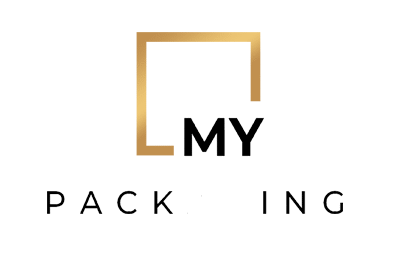Community-Building on Social Platforms: Why It Matters and How to Do It Effectively
In the digital age, social media has become more than just a place to share photos or post updates. It has grown into a powerful environment for building communities—groups of people who share interests, values, goals, or lifestyles. For businesses, community-building on social platforms is not simply about increasing followers. It is about creating meaningful interactions, building trust, and establishing lasting relationships. Companies like IB Digital Services often emphasize community-building as a central part of social growth strategies because it provides real, long-term value.
This article explains why community-building on social platforms is important, what benefits it brings, and how businesses can create and maintain strong online communities.
What Is Community-Building on Social Platforms?
Community-building refers to creating a space where people connect around shared interests. On social media, this can happen on platforms like Facebook, Instagram, LinkedIn, TikTok, Twitter, and others. The key idea is to engage users in discussions, encourage communication, and create a sense of belonging. Instead of simply broadcasting messages to an audience, businesses engage individuals in two-way conversations.
Online communities can form around:
-
A brand or company
-
A shared hobby or lifestyle
-
causes or movements
-
Professional fields
-
Local neighborhoods or interest groups
When a business successfully builds a community, its followers do more than just consume content. They interact, support each other, ask questions, and contribute their own ideas.
Why Community-Building Matters
-
Stronger Trust and Brand Loyalty
People stick with brands they trust. When a business interacts honestly and consistently with its audience, trust grows. Members of a community feel valued, not just targeted for sales. This leads to long-term loyalty instead of one-time purchases.
-
Greater Engagement and Visibility
Social platforms reward engagement. When people like, comment, share, and respond to posts, algorithms push that content to more users. A strong community interacts frequently, which increases reach without extra advertising costs.
-
User-Generated Content
A supportive community often creates content on its own. This includes reviews, testimonials, recommendations, fan posts, photos, and videos. Such content influences new customers because people trust real experiences over marketing claims.
-
Valuable Feedback and Insights
Community members talk about what they like, dislike, need, or expect. This information helps businesses improve products, services, and marketing strategies.
-
Stronger Brand Identity
A community helps define what a brand stands for. The language people use, the stories they share, and the values they discuss shape a brand’s identity naturally over time.
How to Build a Community on Social Media
1. Know Your Audience Clearly
Community-building starts with understanding the target audience. Businesses must know:
-
Interests
-
Age group
-
Pain points
-
Online behavior
-
Preferred platform
For example, a professional services company may focus on LinkedIn, while a lifestyle brand may find stronger engagement on Instagram or TikTok.
2. Create Valuable Content
Content should be helpful, informative, inspiring, or entertaining. People join and stay in communities where they feel they gain value. Posts should aim to:
-
Solve problems
-
Answer common questions
-
Provide tips or guides
-
Share meaningful stories
-
Highlight real experiences
Businesses like IB Digital Services often develop content strategies that balance education, engagement, and brand personality to meet these goals.
3. Encourage Communication and Interaction
Communities grow through conversation. Some effective ways to encourage interaction include:
-
Asking open-ended questions
-
Running polls or surveys
-
Hosting live sessions
-
Responding to comments and messages
-
Sharing user feedback and stories
-
Creating discussion threads or group chats
Communication should be consistent, respectful, and engaging. Silence causes communities to lose interest.
4. Show Authenticity
People prefer real voices over corporate messages. Authenticity builds trust. A business should:
-
Use relatable language
-
Admit mistakes honestly
-
Share behind-the-scenes content
-
Highlight real employees and customers
Authenticity makes a brand feel human, not just commercial.
5. Reward and Recognize Community Members
A community stays active when members feel seen and valued. Recognition can include:
-
Featuring comments or posts from followers
-
Giving loyalty benefits or early access offers
-
Running appreciation giveaways
-
Thanking members publicly
These gestures encourage continued participation.
6. Use Multiple Content Formats
Different users prefer different ways of consuming content. Combine formats such as:
-
Short videos
-
Carousels
-
Stories
-
Articles
-
Infographics
-
Live streams
Using variety helps maintain interest and encourages engagement.
The Role of Professional Support
Some businesses struggle with time, strategy, or consistency. In such cases, partnering with digital marketing experts like IB Digital Services can help create and manage community-building strategies that support long-term growth. Professionals understand how to build trust, maintain consistent engagement, and measure results effectively.
Conclusion
Community-building on social platforms is essential for businesses that want meaningful engagement and long-term growth. It helps create trust, increases visibility, and strengthens relationships with customers. The goal is not just to gain followers, but to create a supportive environment where people feel connected and involved. With the right strategy, consistent content, and genuine communication, any business can develop a thriving online community. Companies such as IB Digital Services often highlight that community-building is one of the most sustainable ways to grow in today’s digital environment, because it is built on real interaction and shared value rather than one-sided marketing.
The stronger the community, the stronger the brand.



